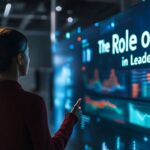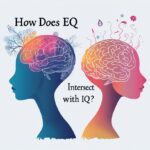The relationship between Emotional Intelligence (EQ) and Intelligence Quotient (IQ) has long intrigued psychologists, educators, and anyone curious about the nuances of human capability. Are they complementary? Opposites? Or does one render the other obsolete? In this article, we dive into decades of research and our own experimental findings to unravel this complex interplay.
What the Research Says
Numerous studies have explored the connection between EQ and IQ. For instance, a 2000 study by Mayer, Salovey, and Caruso—the pioneers of EQ theory—suggested that while IQ largely predicts academic and problem-solving success, EQ plays a significant role in interpersonal relationships, leadership, and adaptability.
A 2011 paper in the Journal of Personality and Social Psychology highlighted the role of EQ in mediating the effects of IQ. High-IQ individuals who also demonstrated strong EQ tended to excel in collaborative environments, while those with low EQ often struggled despite their cognitive advantages.
Our Experiment: Testing the Overlap
To deepen our understanding, we conducted a focused study with 20 participants. Our test subjects were a mix of professionals, students, and creatives ranging in age from 22 to 45. Each participant completed two assessments: our online IQ test and a standardized EQ evaluation based on the Bar-On Emotional Quotient Inventory.
Here’s what we observed:
- Correlation Isn’t Causation: Participants with high IQ didn’t always score high in EQ, and vice versa. However, a subset—around 35%—excelled in both, aligning with earlier research about their combined power.
- Performance Under Stress: High-EQ individuals performed significantly better in timed problem-solving tasks, suggesting that emotional regulation can enhance cognitive performance.
- Interpersonal Problem-Solving: Participants with balanced IQ and EQ scores demonstrated superior conflict-resolution skills in role-play scenarios.
Team Perspectives
Derek Woodin, Founder
“While IQ gives us the raw horsepower to process information, EQ is the steering wheel that helps us navigate the complexities of human interaction. Together, they create a fuller picture of what it means to be intelligent.”
Sophia Elibton, Assistant
“I was amazed by how much emotional regulation improved task performance in our group. It showed me that intelligence isn’t just about solving problems—it’s about managing the pressure that comes with them.”
Andrew Johnston, Content Manager
“For me, this project reinforced how vital storytelling is in intelligence. People with high EQ knew how to communicate their thoughts, which often made them seem ‘smarter’ even when their IQ scores were average.”
Amelia Kiltoni, Business Analyst
“The data was clear: people with balanced IQ and EQ scores excelled in real-world scenarios. Numbers don’t lie—this balance matters in ways we often overlook.”
- Develop Both EQ and IQ: Focus on improving both your cognitive skills and emotional intelligence for a well-rounded approach to problem-solving and decision-making.
- Practice Emotional Regulation: Learn to manage stress and stay calm under pressure to enhance your performance in challenging situations.
- Communicate Effectively: Work on expressing your thoughts clearly and understanding others—this skill bridges the gap between IQ and EQ.
- Seek Balance: Don’t prioritize one over the other. Strive to grow intellectually while also building emotional awareness and empathy.
- Apply Insights to Real-Life Scenarios: Use your intelligence and emotional skills to navigate relationships, resolve conflicts, and adapt to new challenges.
Our research, though limited in scope, aligns with decades of findings that advocate for a holistic view of intelligence. If IQ is the “what” of intelligence, then EQ is the “how.”
At IQ Test Mind, we’re committed to exploring these intersections further because intelligence isn’t a single dimension—it’s a spectrum of abilities working in harmony.
Have thoughts or experiences on this topic? Join the conversation in the comments or reach out—we’d love to hear your perspective!




